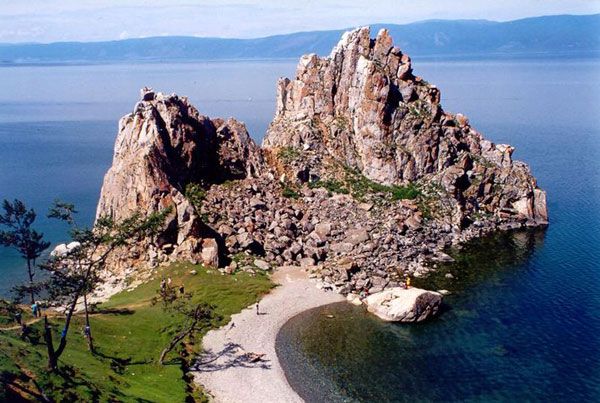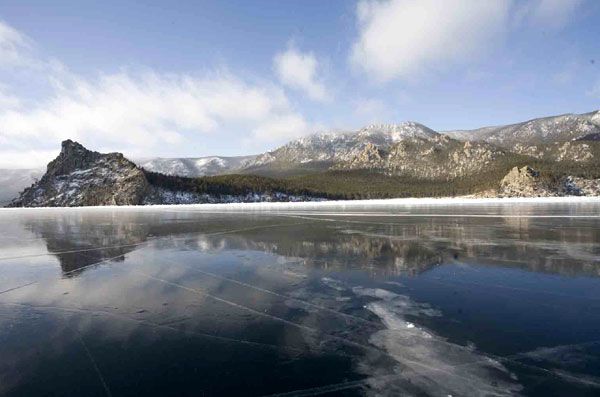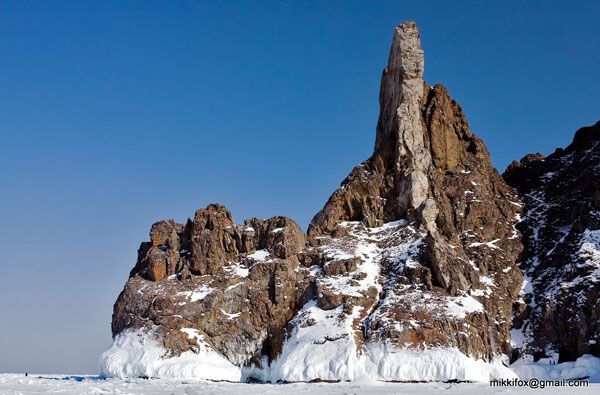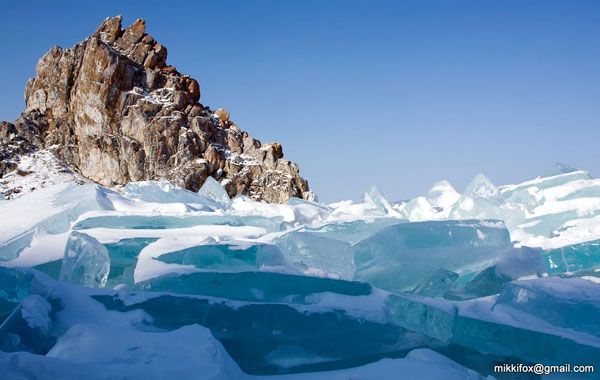
Photo courtesy of World Island Paradise
Lake Baikal... Another cool location that I read about in the National Geographic magazine where I learned about blue holes and the Cave of Crystals last month happens to be the oldest and deepest lake in the world. Known as Lake Baikal, this Russian body of water is 30 million years-old, and has an average depth of 2,442 feet (744.4 meters). At its deepest level, Baikal—which is 395 miles (636 kilometers) long and 49 miles (79 kilometers) wide—reaches a low point of 5,387 feet (1,642 meters)...making this the most voluminous freshwater lake in the world. In fact, Baikal contains about 20% of the world's unfrozen fresh water at the surface.

Photo courtesy of ferrebeekeeper
As you can see from three of the four pics posted with this entry, Lake Baikal completely freezes over during the winter. Actually, that's incorrect: Baikal is fully covered by ice five months out of the year. So if you want to go ice fishing, try doing so between January and May. Temperatures throughout this area range from a minimum of −2°F (−19°C) during the winter to a maximum of 57°F (14°C) during the summer.

In case you want to visit this locale if you ever venture to Russia, Lake Baikal is located south of Siberia...between the Buryat Republic to the southeast and the federal subject of Irkutsk Oblast to the northwest. Lake Baikal was given the nickname "Older sister of Sister Lakes". Its younger sister, Khövsgöl nuur, is the second largest lake by area in the world. Of course, Khövsgöl nuur is located in Mongolia...so have fun dishin' out your passport twice, assuming you don't already live in Central or East Asia, if you want to visit this body of water (at the foot of Mongolia's eastern Sayan Mountains) before or after you check out Lake Baikal near Siberia. Carry on.


No comments:
Post a Comment